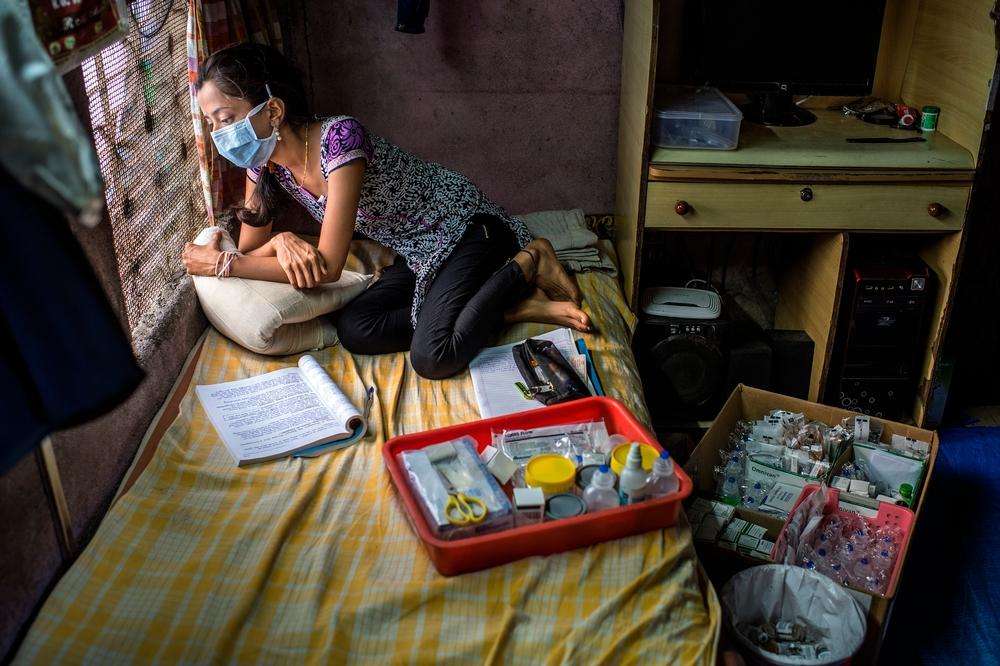NEW YORK/LIVERPOOL, OCTOBER 26, 2016 – At the annual Union World Conference on Lung Health, which started in Liverpool today, Doctors Without Borders/Médecins Sans Frontières (MSF) is sharing its experience of using the new tuberculosis drugs bedaquiline and delamanid to treat people with drug-resistant TB. MSF is also involved in two clinical trials to test new TB treatments, both of which will start enrolling patients soon. The trials aim to find new, more effective, shorter, and more user-friendly treatments for drug-resistant forms of tuberculosis.
“The lack of solid data and evidence on the safety and efficacy of the new TB drugs means that only the sickest people can receive them under current guidelines, and that governments are reluctant to introduce them into their national TB treatment programs for routine use,” said Dr. Catherine Hewison, MSF TB advisor. “Furthermore, very few of those eligible patients have accessed them to date. In fact, through MSF’s effort to accelerate access to and research for the new TB drugs, we now have some of the largest cohorts of patients on bedaquiline and delamanid.”
Bedaquiline and delamanid, which were approved by the Food and Drug Administration (FDA) and European Medicines Agency (EMA) in 2012 and 2014, respectively, are the first two new TB drugs developed in nearly 50 years. They represent a new hope for patients sick with the most resistant forms of TB, for whom most existing drugs do not work. Yet as of October 2016, only 5,700 patients have received bedaquiline globally, and a mere 405 accessed delamanid. According to the World Health Organization’s (WHO) latest estimates, 580,000 people were eligible for multi-drug resistant (MDR-TB) treatment in 2015.
Among the many reasons for this massive gap, one is the limited knowledge on how to use these drugs in combination with existing drugs, as multiple medicines are required to kill the bacteria. Early clinical research and programmatic use have shown promising results, which have led the WHO to recommend use of the drugs for some of the sickest patients. However, far more clinical research should be conducted and published, particularly on their use in new combination treatments; on specific categories of patients (such as pregnant women, children, and HIV-positive patients); and beyond the six-month treatment currently recommended in WHO interim guidelines.
While continuing to advocate for the necessary resources and political will for greater research and development of novel regimens, MSF began its own clinical trials to contribute to knowledge of optimal regimen composition.
MSF is involved in two TB clinical trials—TB PRACTECAL and as part of the endTB partnership—to find new, shorter, more effective combination treatments for multi-drug resistant TB that include the new drugs. Patients’ needs are at the heart of both trials, which aim to find treatments that contain no injectable drugs, and have manageable side effects. Both trials are expected to enroll the first patient by the end of the year.
Within the framework of the endTB project, MSF and its partners are also collecting programmatic evidence about the use of bedaquiline and delamanid in a cohort of 2,600 patients across 15 countries.
To increase use of, and access to, more effective regimens containing the new drugs, MSF and its partners have provided delamanid to 236 patients (of which 21 are children) and bedaquiline to 781 patients. Moreover, 41 patients received a combination of both drugs, and 101 are being treated for more than six months. These efforts span 12 countries in Africa, Eastern Europe, Central and Southern Asia. MSF will share experience from these programs at the Union conference, including preliminary data on patients’ response to treatment.
“Governments, pharmaceutical companies and researchers must prioritize work to increase access to the new drugs for people currently eligible, while supporting collaborative research on better treatment combinations which are reasonably priced and easier for patients to take,” said Dr. Gabriella Ferlazzo, MSF TB advisor. “MSF hopes that the upcoming clinical trials will lead to significantly improved treatments in the future – but we see patients every day who can’t wait years for these results, and who need these lifesaving drugs now.”
MSF is one of the largest non-governmental TB treatment providers, treating TB in 24 countries. In 18 of them MSF provides treatment for drug-resistant forms of the disease. In 2015, MSF had more than 20,000 patients on TB treatment, including 2,000 with DR-TB.
More information about MSF’s role in accelerating research towards new DR-TB treatments can be found here.
Doctors Without Borders Reports at Union World Conference on Lung Health on Use of New TB Drugs




